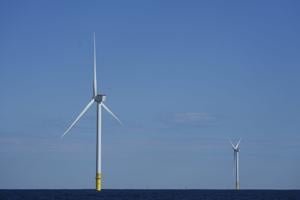The Trump Administration has announced a significant reversal in federal energy development strategy, effectively canceling plans to designate vast areas of federal waters for new offshore wind energy projects. This decisive move represents the latest step in a series of actions aimed at recalibrating the nation’s approach to renewable energy policy and its implementation.
Previously, more than 3.5 million acres across federal maritime zones had been identified and set aside as prime locations for wind energy development. These designated wind energy areas were earmarked for potential large-scale projects, signaling a concerted effort towards expanding America’s clean energy infrastructure.
However, the Bureau of Ocean Energy Management (BOEM), the primary regulatory body overseeing such designations, is now officially rescinding these allocations. The agency stated that its decision is based on a re-evaluation, deeming the previous designations as “speculative wind development” rather than concrete plans.
This policy shift has profound implications for the nascent offshore wind energy industry in the United States. Developers and investors who had been exploring opportunities within these federally designated zones will now face increased uncertainty and a potentially altered regulatory landscape for future projects.
The broader context of this decision fits within the Trump Administration’s consistent push to prioritize traditional fossil fuel industries while often expressing skepticism towards certain forms of renewable energy policy. Critics argue that this latest action could impede the nation’s progress toward reducing carbon emissions and achieving energy independence through diverse sources.
Furthermore, concerns are being raised about the potential environmental impact of this revised approach. While some argue that it could protect marine ecosystems from industrial development, others contend that it undermines efforts to combat climate change by hindering the growth of clean energy alternatives.
Looking ahead, the cancellation of these designated federal waters for offshore wind energy underscores a pivotal moment in American energy development. It signals a clear departure from previous renewable energy strategies and will undoubtedly shape the future trajectory of green infrastructure investment and environmental impact considerations across the nation.






Leave a Reply